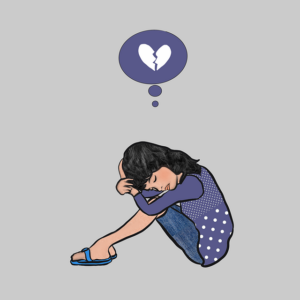Pittsburgh offers a comprehensive suite of PTSD therapies tailored to address various forms of trauma, with specialized treatments such as EMDR therapy, cognitive processing therapy, and exposure therapy available for residents. EMDR employs bilateral stimulation to reprocess traumatic memories, while cognitive processing therapy helps patients reshape distorted thought patterns. Exposure therapy aids in diminishing the psychological effects of trauma by repeatedly confronting memories in a secure environment. Trauma-Focused Cognitive Behavioral Therapy (TF-CBT) is another key modality, empowering survivors to confront and reframe traumatic experiences. These therapies are delivered by skilled trauma counselors who ensure personalized care within an evidence-based framework, reflecting Pittsburgh's commitment to comprehensive PTSD treatment. The city's mental health community is equipped with a network of dedicated professionals offering compassionate care, making PTSD therapy Pittsburgh one of the most robust and accessible in the region.
In the heart of Pennsylvania’s Steel City, a network of compassionate care and expert treatment awaits those grappling with Post-Traumatic Stress Disorder (PTSD). This comprehensive guide delves into the multifaceted approaches to PTSD therapy in Pittsburgh, where evidence-based practices stand at the forefront of healing. From Trauma-Focused Cognitive Behavioral Therapy to Eye Movement Desensitization and Reprocessing (EMDR), Pittsburgh offers a suite of treatments tailored to diverse needs, including specialized programs for veterans and first responders. This article navigates through these therapeutic approaches, highlighting the significance of trauma-informed care and the availability of PTSD therapy in Pittsburgh, ensuring no survivor faces their battle alone. Discover the path to recovery with PTSD therapy options available in this resilient city, where healing is not just an outcome but a journey supported by expert guidance and holistic methods for PTSD recovery.
- Comprehensive Guide to PTSD Therapy Pittsburgh: Effective Treatments and Resources
- – Overview of Evidence-Based PTSD Treatment Options in Pittsburgh
- – Trauma-Focused Cognitive Behavioral Therapy (TF-CBT): Empowering Survivors in Pittsburgh
Comprehensive Guide to PTSD Therapy Pittsburgh: Effective Treatments and Resources

In Pittsburgh, a range of evidence-based treatments is available for individuals grappling with PTSD, offering hope and healing through trauma counseling Pittsburgh. The city’s comprehensive guide to PTSD therapy encompasses various approaches tailored to different experiences of trauma. EMDR (Eye Movement Desensitization and Reprocessing) therapy Pittsburgh stands out as a widely recognized modality that helps patients reprocess traumatic memories by linking them with eye movements, bilateral stimulation, or other dual-attachment stimuli. This non-intrusive treatment can alleviate the intense emotions associated with PTSD, allowing individuals to develop more adaptive coping mechanisms.
Furthermore, cognitive processing therapy Pittsburgh is another cornerstone of effective PTSD treatment. This form of trauma-focused cognitive behavioral therapy (TF-CBT) addresses how a person’s beliefs and thoughts about the traumatic event have been altered and helps them work through these distortions. The city’s veterans, in particular, can benefit from prolonged exposure therapy Pittsburgh, which involves repeated recall and examination of trauma memories to reduce their psychological impact. This treatment is particularly effective for those who have experienced military-related trauma and are seeking PTSD treatment Pittsburgh that aligns with their experiences. Additionally, group therapy for PTSD survivors Pittsburgh offers a supportive environment where individuals can share their experiences, learn from others, and develop new strategies to manage their symptoms. Mindfulness-based treatments and medication management for PTSD Pittsburgh also play crucial roles in addressing the complex nature of the disorder. These holistic approaches, alongside comprehensive resources and specialized providers, ensure that those affected by PTSD can find the most suitable and effective therapy to support their recovery journey.
– Overview of Evidence-Based PTSD Treatment Options in Pittsburgh

Pittsburgh offers a comprehensive suite of evidence-based PTSD treatments tailored to address the unique needs of individuals affected by trauma. Among the most effective modalities available in the city is EMDR therapy Pittsburgh, which stands for Eye Movement Desensitization and Reprocessing. This treatment helps patients reprocess traumatic memories through bilateral stimulation, alleviating PTSD symptoms and fostering adaptive resolution of trauma-related experiences. Additionally, cognitive processing therapy Pittsburgh is a structured, focused psychotherapy that empowers survivors to challenge and change the distorted beliefs that stem from their traumatic experiences, leading to significant improvements in their quality of life.
Exposure therapy Pittsburgh, particularly Prolonged Exposure Therapy (PE), is another cornerstone of PTSD treatment. PE is highly effective for veterans and others who have experienced trauma, guiding individuals to confront their fears and traumatic memories in a safe environment, which can significantly reduce avoidance behaviors and the intensity of PTSD symptoms. Trauma-focused cognitive behavioral therapy (TF-CBT) Pittsburgh is also pivotal, offering strategies to manage emotions and thoughts related to trauma, thereby enhancing coping skills and resilience. For those seeking a more communal approach to healing, group therapy for PTSD survivors Pittsburgh provides a supportive environment where individuals can share experiences and learn from each other’s journeys. Moreover, mindfulness-based PTSD treatment Pittsburgh incorporates mindfulness techniques to help patients develop a greater sense of awareness and self-regulation, which can be instrumental in managing the intrusive symptoms of PTSD. Lastly, medication management for PTSD Pittsburgh plays a vital role in addressing the biological underpinnings of the disorder, often complementing psychotherapy strategies and enhancing overall treatment effectiveness. Holistic approaches to PTSD recovery Pittsburgh also encompass various complementary methods that can promote physical, emotional, and mental well-being alongside conventional treatments. These evidence-based interventions collectively underscore Pittsburgh’s commitment to providing comprehensive care for those grappling with PTSD.
– Trauma-Focused Cognitive Behavioral Therapy (TF-CBT): Empowering Survivors in Pittsburgh

Trauma-Focused Cognitive Behavioral Therapy (TF-CBT) stands out as a cornerstone in the arsenal of PTSD therapy options available to Pittsburgh residents who have experienced trauma. This evidence-based approach is tailored to empower survivors, helping them to confront and reframe traumatic memories that contribute to PTSD. The process involves collaborative dialogue with skilled trauma counselors in Pittsburgh, where individuals learn to identify negative thought patterns and emotions associated with their experiences. By gradually and systematically exposing themselves to these memories, patients can work through their trauma, often leading to a reduction in PTSD symptoms. This therapy is particularly effective for a wide range of populations, including children, adolescents, and adults, making it a versatile treatment within the city’s mental health resources.
In addition to TF-CBT, Pittsburgh offers specialized PTSD treatments such as EMDR therapy, cognitive processing therapy, and exposure therapy, all of which are accessible to residents seeking effective PTSD treatment Pittsburgh. EMDR (Eye Movement Desensitization and Reprocessing) therapy is a unique form of treatment that involves an 8-phase process designed to minimize the impact of traumatic memories. It is particularly recognized for its efficacy in treating PTSD symptoms by helping the brain reprocess traumatic memories into a more adaptive neural network. Cognitive Processing Therapy (CPT) helps individuals address and alter unhelpful beliefs related to their traumatic experiences, fostering a healthier cognitive framework. Exposure therapy Pittsburgh, which can be implemented in various forms such as prolonged exposure therapy, is a critical component of PTSD treatment, enabling survivors to confront fears and traumas in a safe environment, thereby reducing the intensity of their symptoms over time. These therapeutic approaches are not only tailored to individual needs but also supported by a network of dedicated mental health professionals committed to providing compassionate, evidence-based care for those affected by PTSD in Pittsburgh.






